A new airport terminal in Marseille was in the news last week, as it is being dubbed Europe's first no-frills airport. The former freight warehouse has been minimally transformed into an airport, designed to cater for the burgeoning low-cost airline market. This article describes the airport - only minimal seating, very few mechanics with passengers carrying their own luggage to security, there are no carpets and passengers walk to the plane, rather than on ramps. The idea is that the airport cuts down on costs and time spent waiting.
I can't quite decide if this is a good idea or not. Cutting time and costs is to be commended, but it should be questioned what is being lost. Airports are strange spaces, devoid of any identification. One airport wall could almost be any another. If it were not for the shops, restaurants and other amenities, airports could be in any city, any country, anywhere.
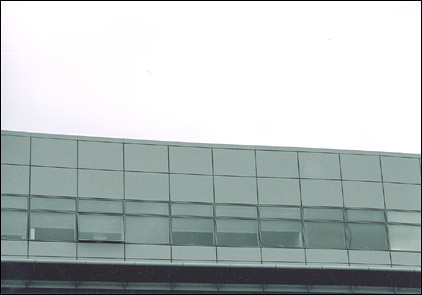
I remember quite a few years ago, Cork airport unveiled a statue of the ex-Irish soccer manager Jack Charlton. This statue was located in the main hall of the airport. The statue is gone now, as is the sense of the space as being Irish. The new terminal is a very bland space - the most Irish aspect is its use of wood as a decorative material (an almost ubiquitous feature of contemporary Irish industrial architecture). In the run up to the launch of the airport's new terminal, Cork airport ran an ad campaign saying "Soon, you won't know where you are" referring to the great changes in the airport, but equally having a poignant double meaning.
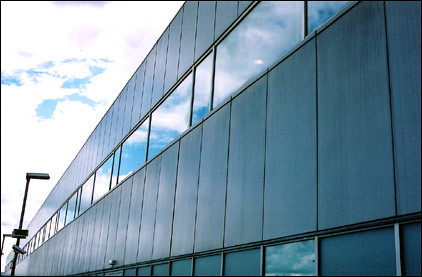
San Francisco airport was the probably worst airport that I've been in. Nothing about it said "San Francisco". I arrived in the evening, the airport was relatively quiet. But more than that, it was dull. All I remember from the airport is grey - grey walls, grey carpets, grey atmosphere.
I quite like airports. I like knowing where I am. I'm always keen to find the large signs outside airports declaring the town or city, and disappointed when they're not there. I feel sad that airports are not more rooted in their cities. Maybe I'm overly sentimental, of course, as airports in the modern travel industry seem to have become nothing more than in-between spaces, out-of-place buffer zones.
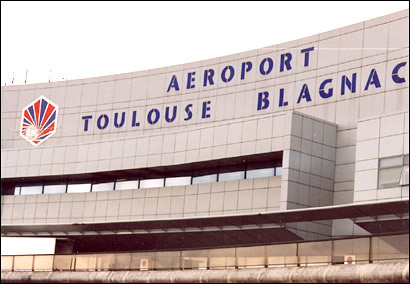


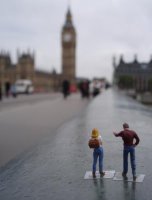

 has reached New Zealand is pretty amazing. Keely Reid threw a bottle into the waters of the Moray Firth, hoping that it would maybe reach Norway. She was completely surprised when a boy in New Zealand wrote to her saying he had found it. It reached there in 47 days, an astounding rate. "It is brilliant, this bottle travelled farther than I ever have," said Keely, which is rather poignant really.
has reached New Zealand is pretty amazing. Keely Reid threw a bottle into the waters of the Moray Firth, hoping that it would maybe reach Norway. She was completely surprised when a boy in New Zealand wrote to her saying he had found it. It reached there in 47 days, an astounding rate. "It is brilliant, this bottle travelled farther than I ever have," said Keely, which is rather poignant really. 
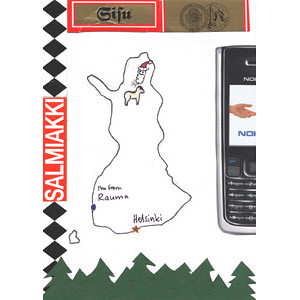
 Across the top, there is the wrapper from something which appears to be Gifu, but is in fact Sisu. Sisu are liquorice throat sweets, but also much more. Due to its cultural significance, sisu is a popular Finnish brand name.
Across the top, there is the wrapper from something which appears to be Gifu, but is in fact Sisu. Sisu are liquorice throat sweets, but also much more. Due to its cultural significance, sisu is a popular Finnish brand name.